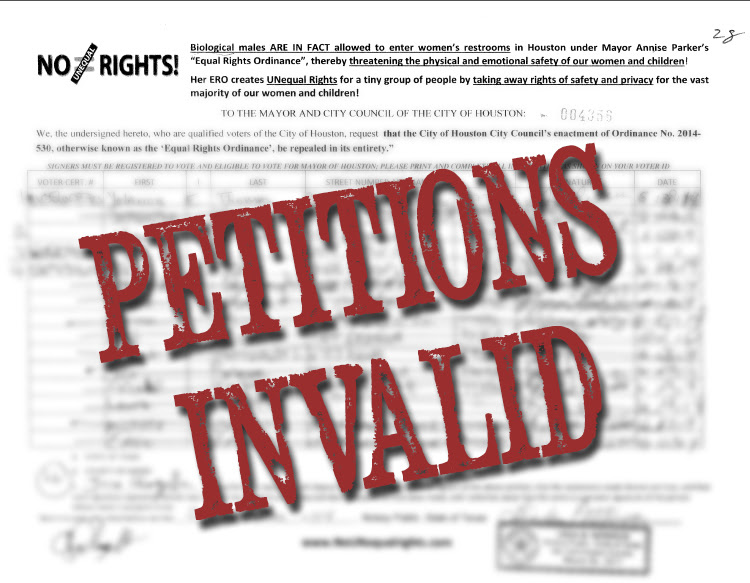Chron business columnist Chris Tomlinson has a warning for us.
Watching Indiana Gov. Mike Pence call for a revision to a week-old religious freedom law this morning should be required viewing for every Houston politician and business person.
After refusing to denounce discrimination against lesbian, gay, bisexual and transgender individuals for days out of fear of alienating his political base, Pence did what all politicians who see their careers slipping away do. He flip-flopped, called it a clarification and denied there was a problem.
Why did this conservative Republican suddenly speak out against LGBT discrimination? Because American consumers and businesses made it clear that they would not accept bigotry in any form, even when disguised as religiosity. Corporations announced they would not subject their LGBT employees to the chance they may face legally-sanctioned discrimination. Angie’s List announced it would not expand in Indiana and numerous other groups began canceling conventions in the state.
What happened to Pence could happen to Houston and Texas.
[…]
Can you imagine what would happen if the small number of Houston voters who actually show up to the polls approved a repeal of the law? Houston would be labeled a city of bigots and the firestorm over Indiana would look like a campfire.
I know business people don’t like to think about social issues, most are concentrating on running the best business they can. But the business community needs to pay attention to what’s happening to Houston’s civil rights ordinance in court and what could happen at the ballot box. If the repeal passes, those new hotels and the updated convention center may have a hard time finding customers.
We should know soon whether or not there were enough valid signatures after the recount. In the meantime, as Tomlinson noted, there are bills in the Legislature that would do to Texas what Mike Pence did to Indiana; Arkansas was also going down that path before their Governor had a dose of sanity. Maybe all that WalMart lobbying against it made a difference. In any event, you might think that organized opposition from the business community here might help sway some opposition, but 1) the type of person that supports this kind of law doesn’t believe any of the bad things that everyone tells them will happen will actually happen, even with the evidence of it happening now, and 2) I don’t believe the business community will follow up by actually opposing any of the supporters of those bills in the next election.
To be fair, the business community is talking a good game.
“This thing is equally bad or worse than Indiana, and look what’s happening there,” said Bill Hammond, head of the powerful lobbying group the Texas Association of Business. Organizations as disparate as NASCAR, Walmart and Apple have blasted Indiana and Arkansas for their laws, already prompting the governors of both states to backpeddle on their support.
Sen. Donna Campbell, R-New Braunfels, one of at least three lawmakers proposing so-called religious freedom legislation this session, said she will narrow her bill in the face of a slew of similar concerns.
Campbell’s Senate Joint Resolution 10 seeks to enshrine the 15-year-old Texas law in the state Constitution, but without the key civil rights and local control protections. Her original proposal also removed the word “substantially,” which critics said would have allowed anyone who thinks the government is infringing upon his free expression, however slightly, to sue the state.
On Wednesday, however, Campbell’s staff confirmed she will re-insert the word “substantially.” Rep. Matt Krause, R-Fort Worth, who has proposed an identical bill in the House, said he is not opposed to amending his legislation the same way.
“That’s an improvement,” Hammond said. “But we have a long list of concerns with the legislation and the issue of ‘substantial burden’ is just one of them.”
Hammond cited the civil rights protections and local control issue, saying not exempting cities and municipalities could put local nondiscrimination ordinances like those in San Antonio and Houston on the chopping block. Enshrining the law in the Texas Constitution would make it much harder to amend or repeal if problems arise, he said. He also noted Campbell’s bill does not include a $10,000 cap on damages included in the existing law, potentially opening the state to unlimited litigation costs.
The impact on the Texas’ economy could be substantial, Hammond and other opponents said. Houston and other cities could lose the opportunity to host valuable sporting events and companies planning to expand their Lone Star State footprint could pull out – like Angie’s List did with its now-canceled expansion in Indianapolis.
“The motivation is to permit discrimination on the basis of religious belief,” said Rebecca Robertson, legislative and policy director for the American Civil Liberties Union of Texas. “That’s not the brand we want to be associated with.”
The opposition was heavy enough to lead Jason Villalba, R-Dallas, to drop his religious freedom proposal in early March, after which Krause picked it up. Krause said he would be amenable to tweaking his bill, but he chalked up business opposition to opponents simply not understanding the legislation.
“I think it’s a bunch of overreaction, and not understanding what the law really does or what it means,” Krause said.
Oh, I think we all understand it just fine, but thanks for demonstrating my point. Like I said, people like Bill Hammond talk a good game but they are notoriously short on action. A credible threat of primary opposition might open some eyes. If one is not inclined to do the right thing, one needs to fear the consequences of doing the wrong thing. I don’t think enough legislators do.


Pingback: Joining together for equality | Visit TX